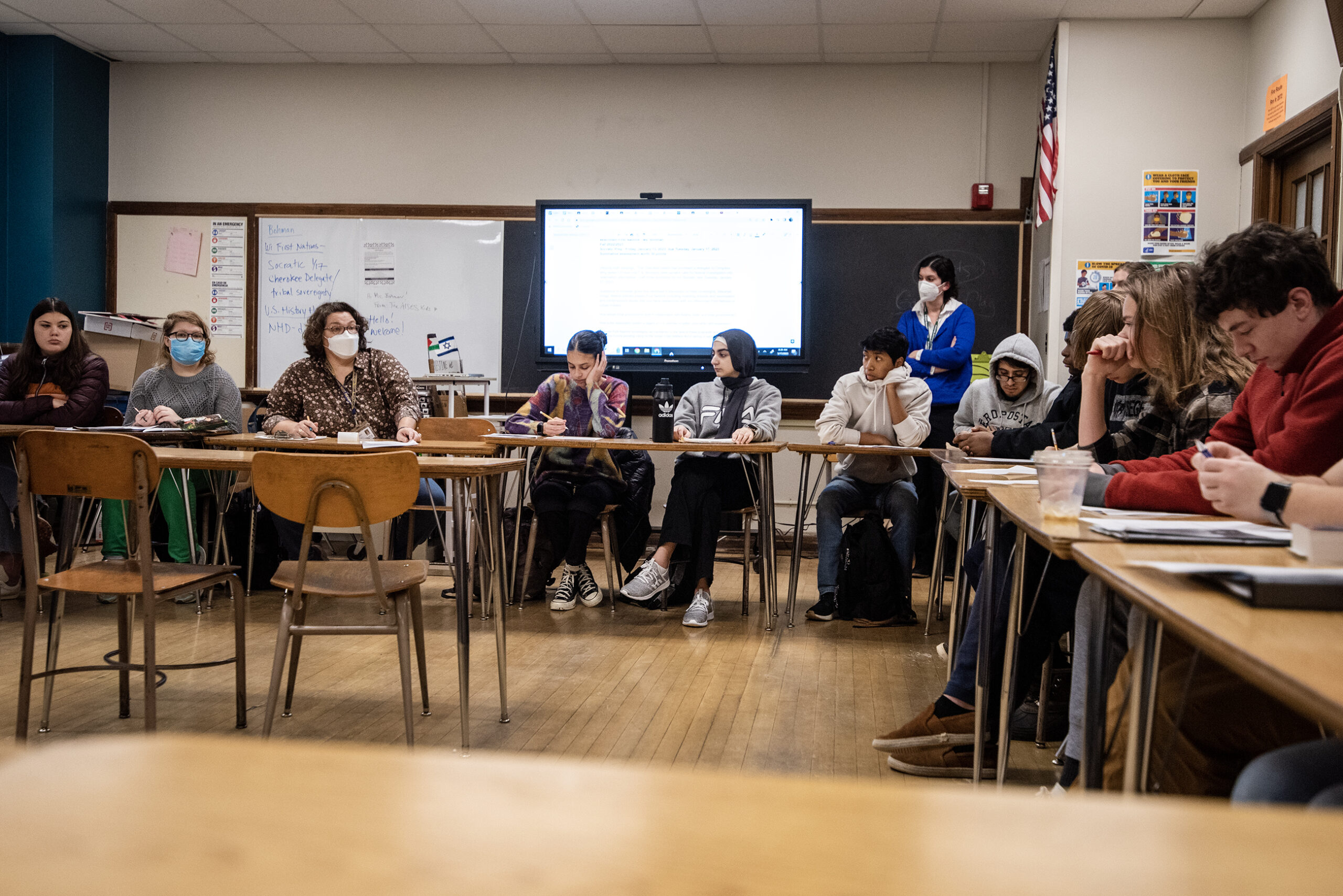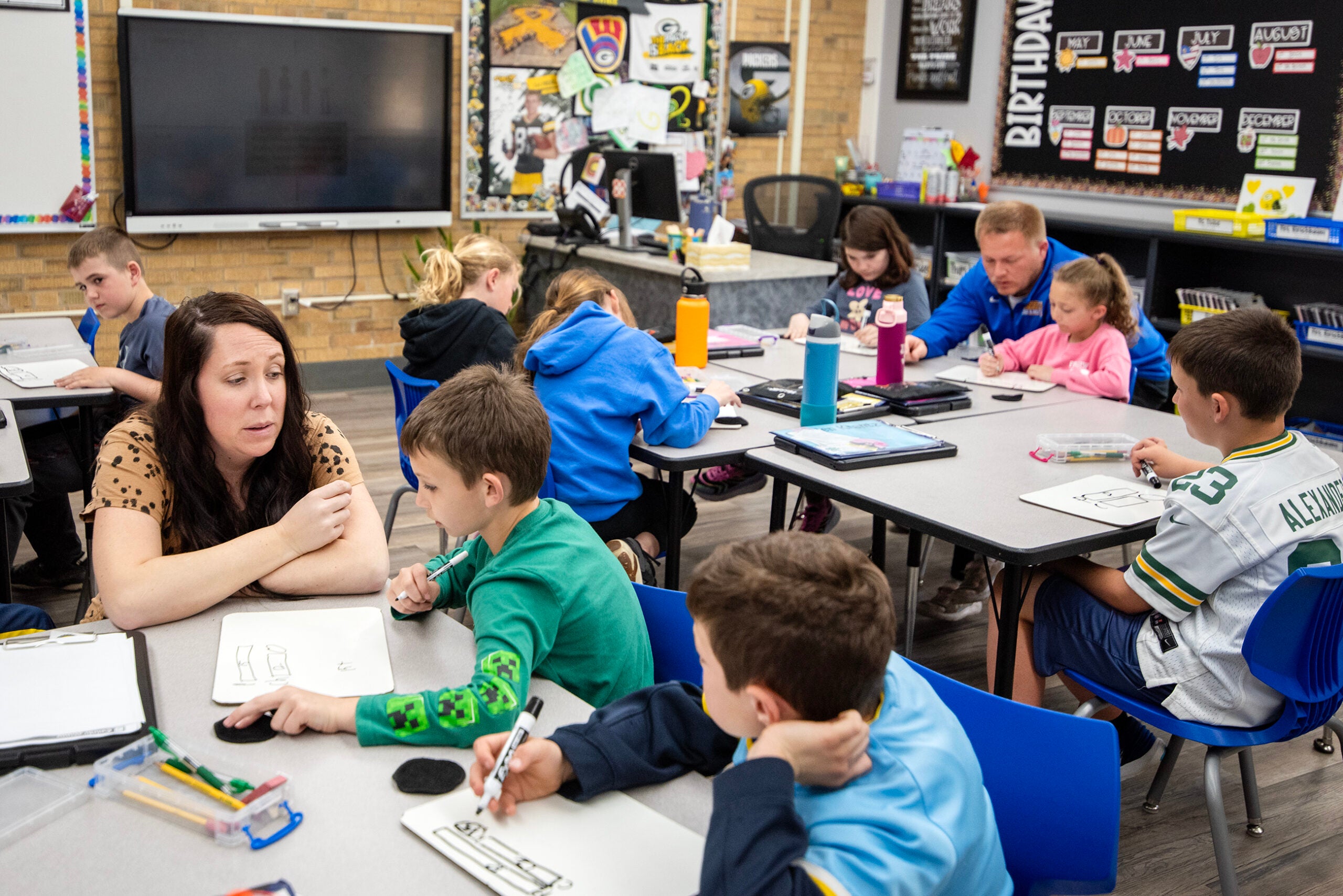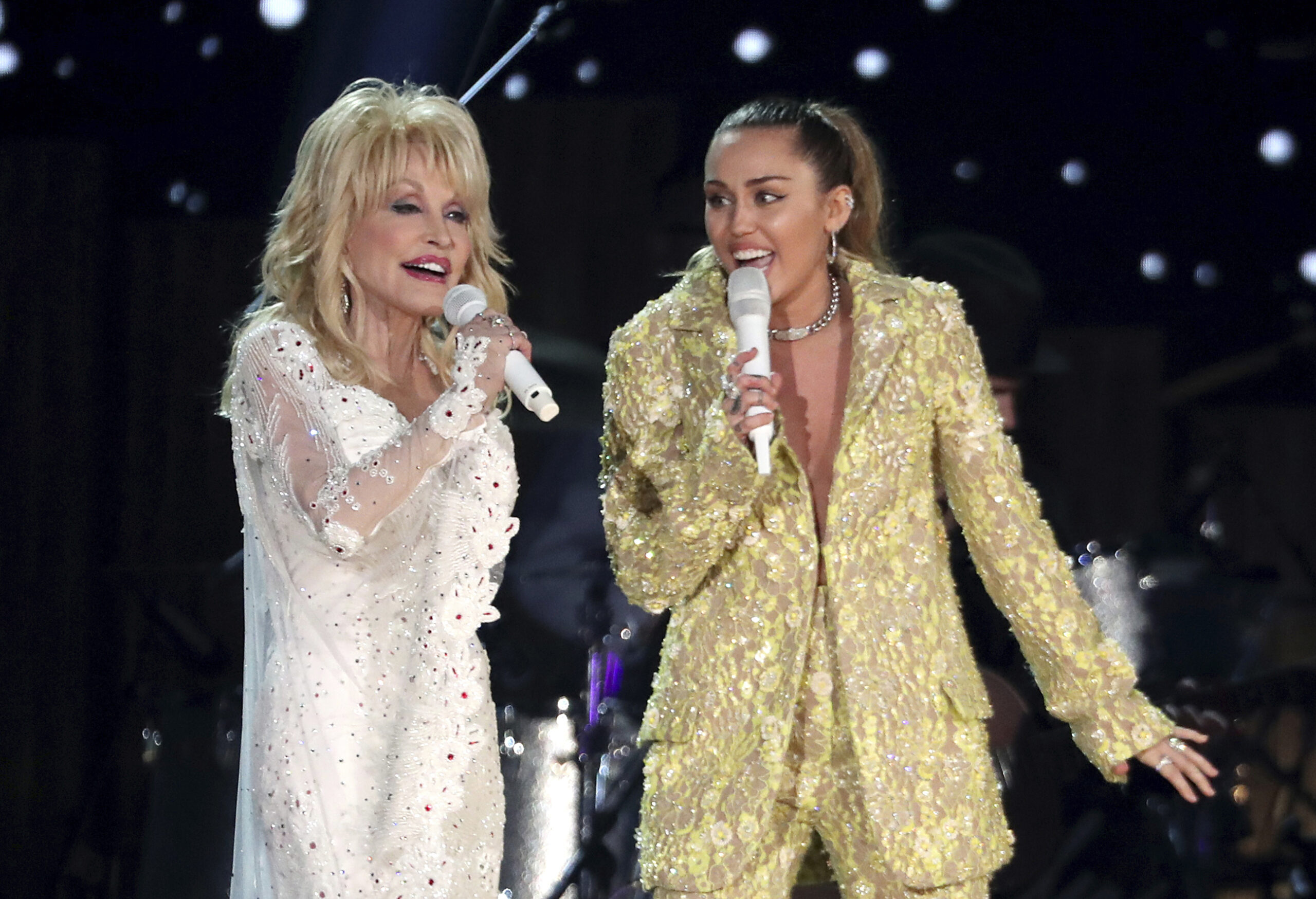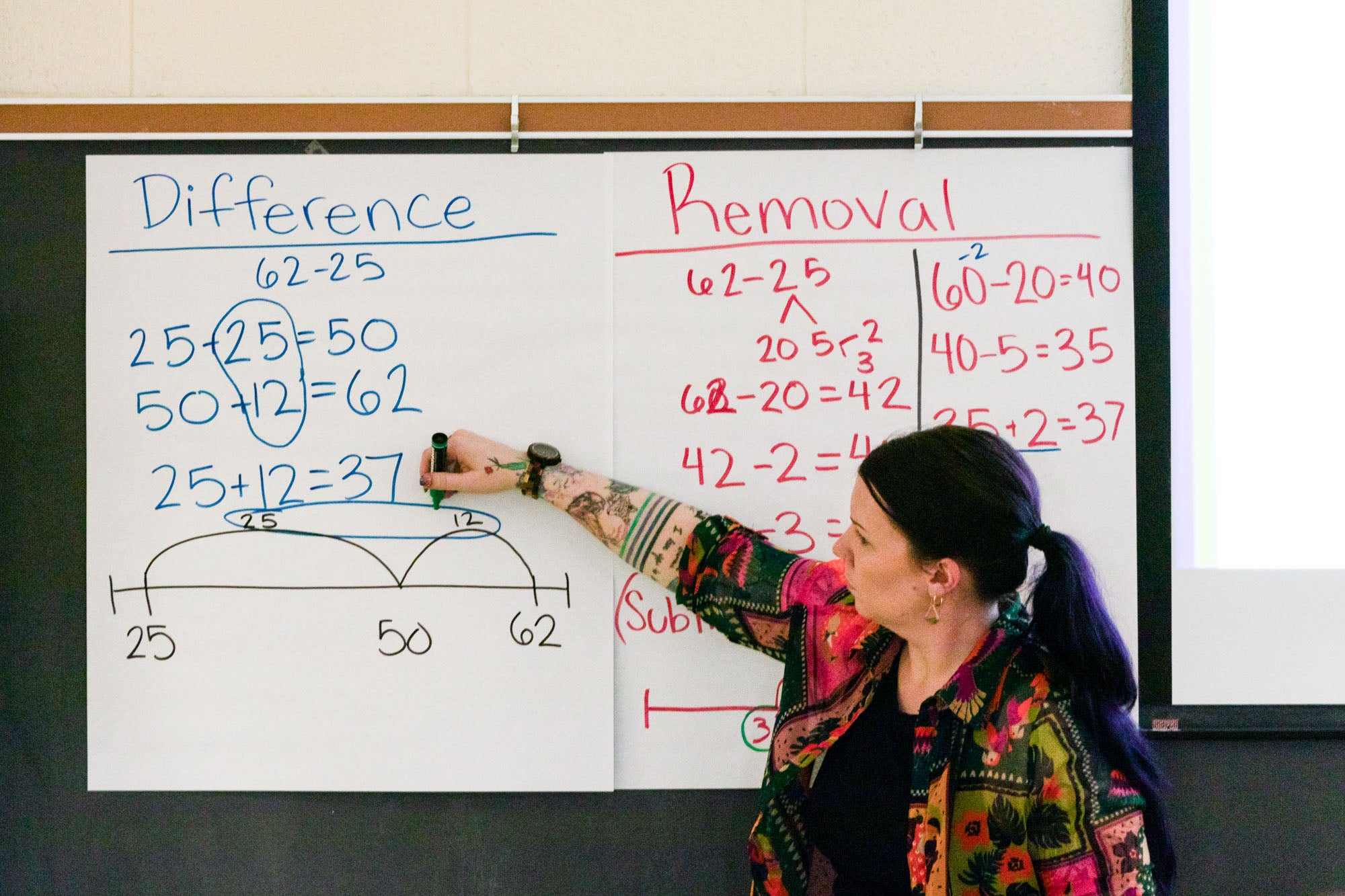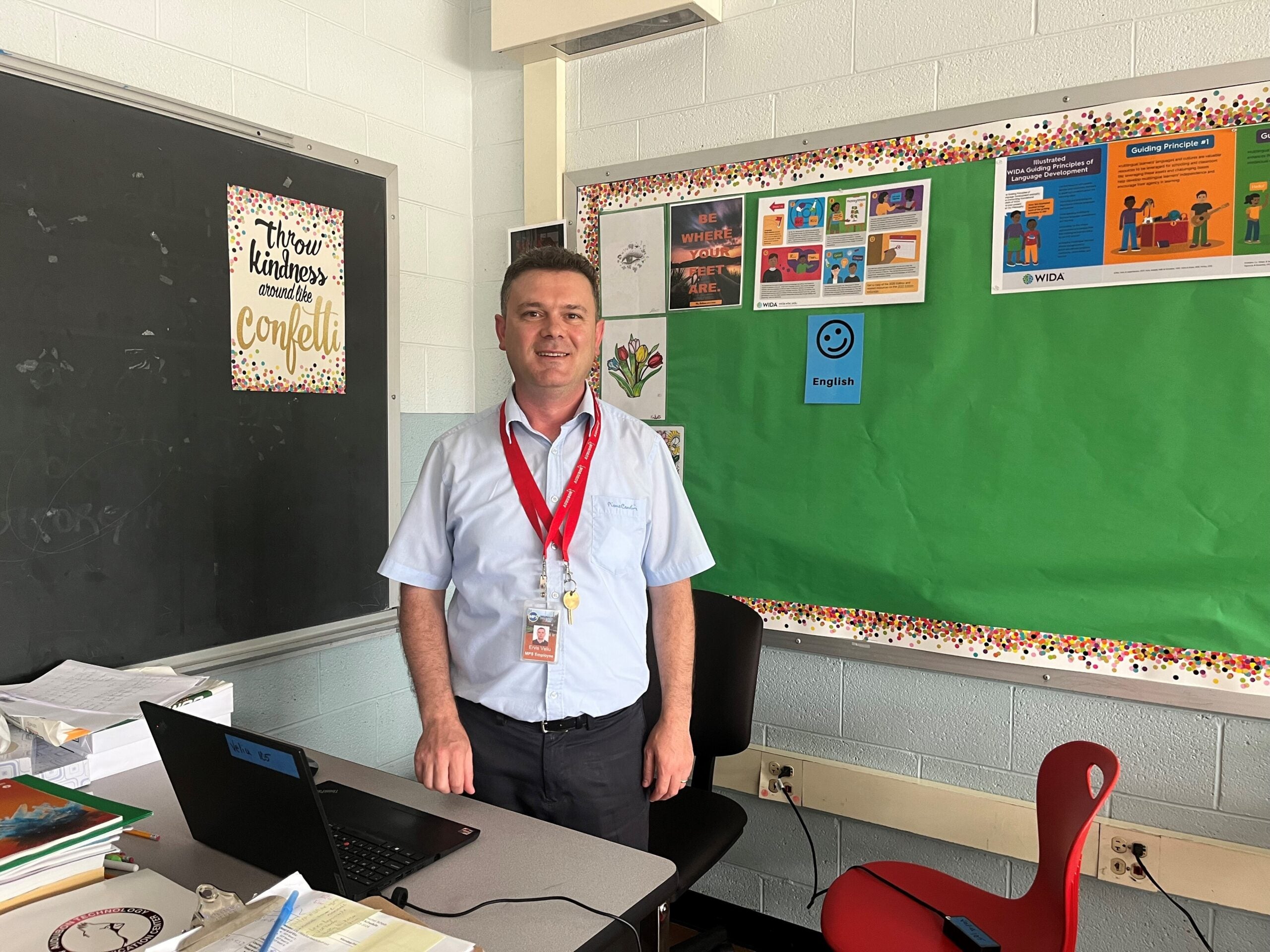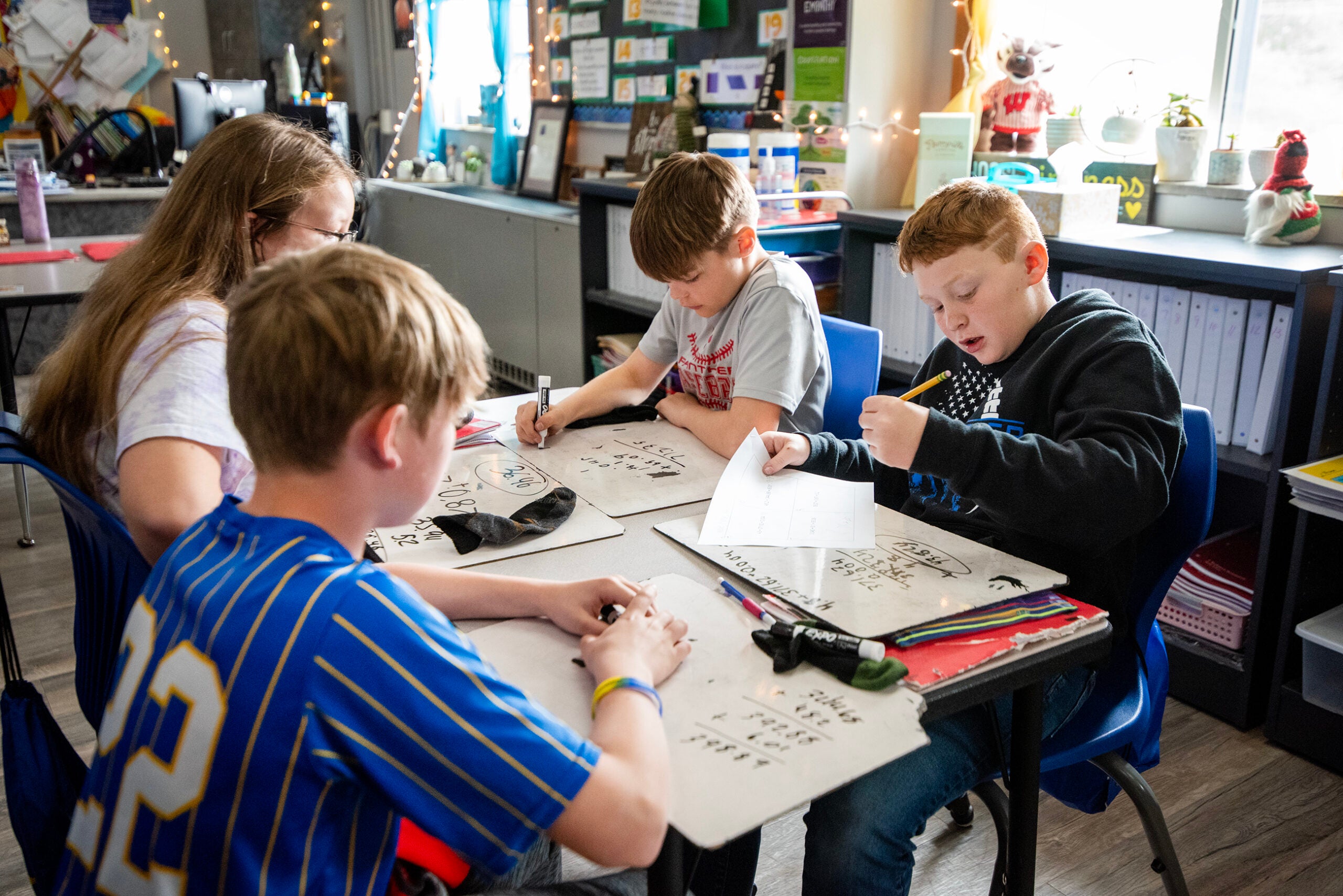Social studies teachers are returning to the classroom during the home stretch of a contentious election season in Wisconsin. On top of their back-to-school responsibilities, they’re navigating how to teach about the topic in a politically polarized state.
Sarah Kopplin is a social studies teacher at Shorewood Intermediate School and president of the Wisconsin Council for the Social Studies. She said an alarming number of social studies teachers around the state have seen pushback on their lessons about elections and other current events.
A survey from the council found 42 percent of council member respondents reported that building administration, school boards or community members lodged complaints or put restrictions on lessons related to politics, an election or current events, Kopplin said on WPR’s “Wisconsin Today.”
News with a little more humanity
WPR’s “Wisconsin Today” newsletter keeps you connected to the state you love without feeling overwhelmed. No paywall. No agenda. No corporate filter.
Sherri Michalowski taught social studies in Wisconsin for 40 years. She said the political pressures facing her profession have gotten more intense in recent years. She cited that problem as one of her reasons for retiring back in 2022.
“I just didn’t think I could play that game of having to be too careful all the time,” she said.
Kopplin has heard from other teachers like Michalowski who have left their jobs after being discouraged from teaching elections and current events by administrators and community members.
“They feel that they don’t really have a purpose for being there, and they can’t really help their students be the engaged future citizens that they want to be,” Kopplin said.
Support from school leadership makes for better civics education, researcher says
While most states require high schoolers to take a civics or government course to graduate, Wisconsin does not. Districts may decide for themselves if such classes are requirements, electives or offered at all. Wisconsin does require all high school students to pass a civics test to graduate, however.
Whether information on elections and current events comes from a dedicated civics course or another type of social studies class, University of Wisconsin-Madison education researcher Jeremy Stoddard said covering those topics is vital to creating informed, engaged citizens. It can also reduce political polarization.
“Schools might be the only place where they actually get exposed to different views on key issues of the day,” Stoddard told “Wisconsin Today.” “Otherwise, people get their news filtered in through one way … If they’re not doing it in schools, that’s a real problem.”
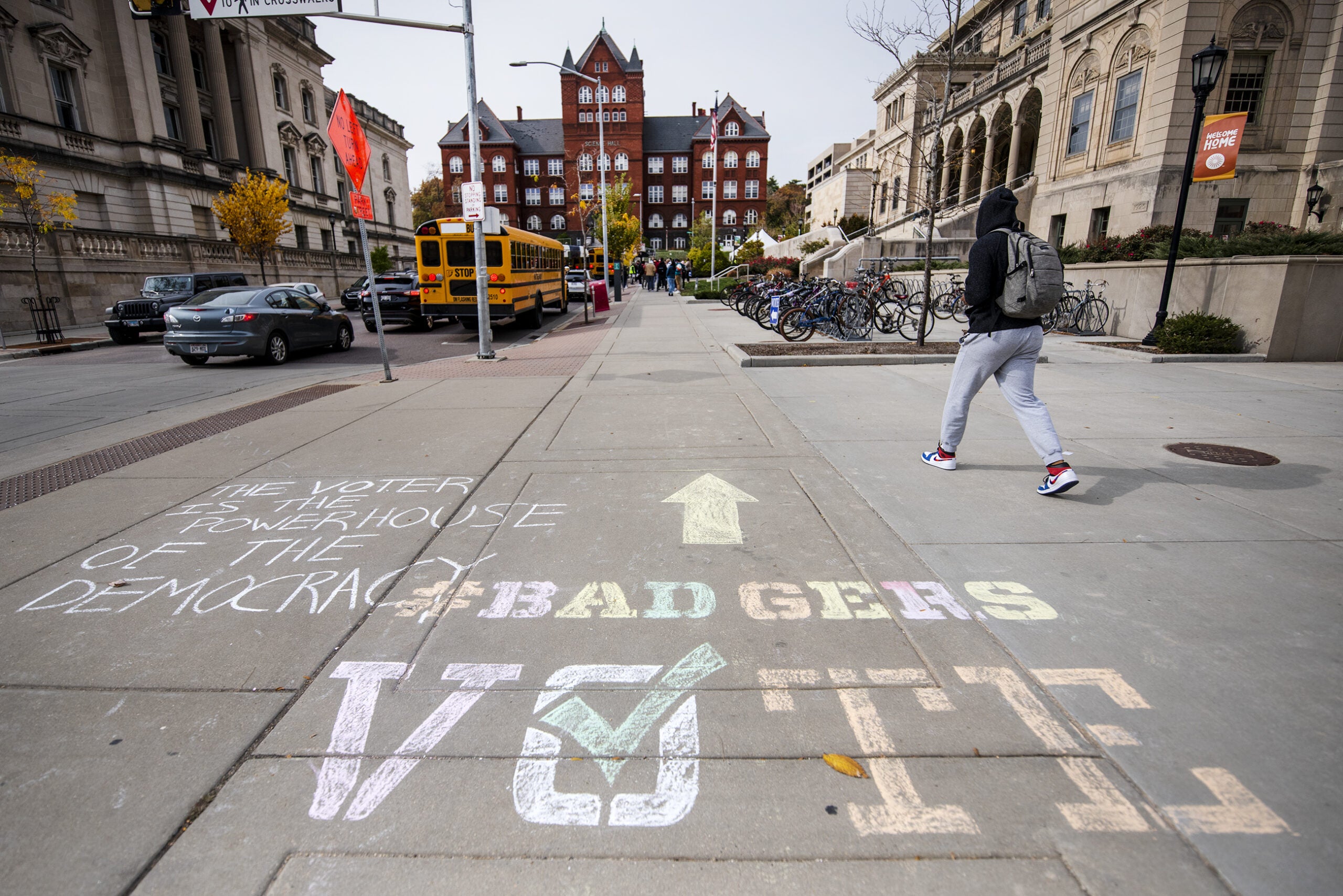
Stoddard’s research on how educators taught the 2018 and 2020 elections suggests that teachers who were able to offer what they consider a high-quality civics education — for example, analyzing media and actively engaging with current events in class — had autonomy over their curriculum and strong support from school administrators.
He said school leadership should trust their teachers to maintain professionalism and neutrality while discussing controversial topics in the classroom.
“This is the mission of schools,” he said. “We can do this well, and we have professional teachers, so there’s no need to avoid it.”
To help K-12 teachers and administrators prepare for classroom discussions about the election, Stoddard and his colleagues at the UW-Madison School of Education will be holding a Teaching About the Elections conference later this month.
Wisconsin Council for the Social Studies emphasizes a need for academic freedom
Last week, the Wisconsin Council for the Social Studies released a position statement on academic freedom for Wisconsin teachers.
“The Wisconsin Council for the Social Studies firmly advocates that the teaching of civics, current events, and elections is fundamental to equipping students with the knowledge and skills required for active, informed citizenship in our democracy,” the statement reads. “Academic freedom is essential for social studies educators to facilitate these crucial lessons.”
Kopplin said teachers with academic freedom can empower their students to make informed decisions. Academic freedom is not about teachers imposing their own political beliefs on students, she added.
“It’s actually giving students an opportunity to think to themselves: ‘What can I do with this information?’” Kopplin said. “How do they know how to analyze information so that they can inform themselves as a voter?”
Kopplin said she feels supported by her school administrators and community members in the way she chooses to teach her civics classes. With that support, she has been able to engage her middle schoolers in civic debates on the topics that interest them, including abortion and LGBTQ+ issues.
Kopplin said she’s inspired by how her students are able to discuss potentially controversial topics with their classmates.
“It is unbelievable to see how open-minded they are,” Kopplin said. “(They are) accepting and willing to practice being wrong, to practice listening to other people, to practice being OK with not necessarily having to agree, but still walk out of the classroom and be able to sit together at lunch or play at recess.”
Editor’s note: This article was updated Sept. 5 to reflect that Wisconsin requires students take a civics test to graduate high school.
Wisconsin Public Radio, © Copyright 2025, Board of Regents of the University of Wisconsin System and Wisconsin Educational Communications Board.

